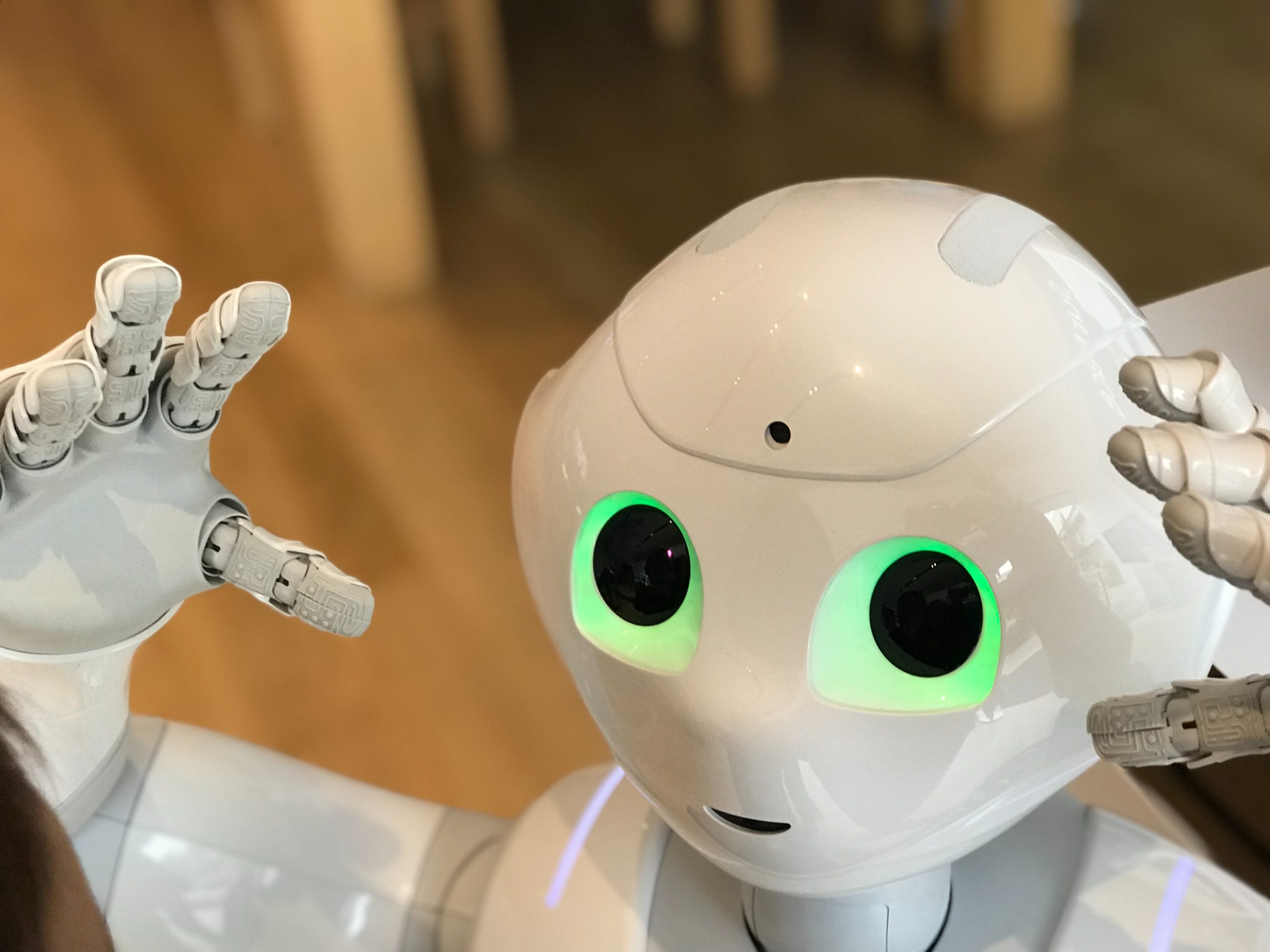Technology has very quickly become an integral part of the employee experience. But while parts of the world battle at Government level to the “right of employees to disconnect”, others move forwards with significant investments in AI that may seek to diminish the value of people in the workplace. What do the current advances in AI mean for the wellbeing of our people? Is AI just taking our jobs? or can we alleviate the negative impacts of AI if we put our people first?
Employee wellbeing is now critical to sustaining your operations
The first thing I need to make clear is that I absolutely believe that in order to be a well-functioning and successful organisation, you need to be prioritising employee wellbeing. The evidence to back this statement up is now so vast and compelling that we can say it with a high degree of certainty.
Wellbeing is playing a key role in every employer’s ability to not only attract and retain the best people, but also how we reward them. Employees are demanding more from employers and have high expectations concerning how an organisation supports their wellbeing.
At this point in time half of employees say they are at risk of burnout, three quarters feel “overwhelmed” or “unable to cope” and more than half say work is more intense than it’s ever been. Supporting our people and their lives inside and outside of work has never been so important, or challenging. So when we think about the impact AI may have on our organisation, we must think about employee wellbeing at the same time.
New technology has the potential to undermine our wellbeing
We can look back over thousands of years to understand that as new technology grips society, it does affect us. For example, the creep of modern technology over the last twenty years has meant we are spending more time indoors with a screen too close to our faces. Modern technology promotes a “down and forward” user position that leads to poorer posture.
But when humans began farming 5,000 years ago, one our bone density was higher. If we compare human remains from all those years ago top modern bones, we can see that our bone density has dropped by 30%. Agriculture reduced both the amount of work that humans had to perform, as well as the variety of it. Work became only fairly repetitive and a little easier on our bodies as a result of mass agriculture. Even looking to more recent history during the industrial revolution we can see that the human body bent under the stress of incredibly repetitive and physically demanding work. The type of work conducted by many during the 1800’s characterised many of the diseases of the Victorian period.
The promise of new technology is always that it will improve productivity. However, may this pursuit of better performance actually be doing the opposite by harming our wellbeing? Instead of accomplishing one thing and executing it well, we end up doing multiple things, with mediocre results. Frequent multitasking may contribute to diminished grey matter in the anterior cingulate cortex, an area of the brain where attentional control resides. We tend to compensate for interruptions to our work by working faster, which is leading to more stress and frustration. So when we think about how AI could soon enter our workplaces in earnest, we have to think about the impact on the individual, not just the organisation.
We can’t get away from technology’s grip on the workplace. Technology in the workplace is ubiquitous. It’s enhanced the employee experience and for all of us, made life and work much easier. Processes that were once manual and time consuming can now be achieved quickly and efficiently. Communication has become easier as has collaboration. For employers, costs are lower, and errors are less frequent. So this leads me to believe that we have to change the way we use and manage AI at work, rather than push back against it.
The impact of AI at work depends on how we use it
A review of 200 studies into the effects of workplace technology has found that we are actually lacking a clear picture of the objective demand’s technology is putting on us. A scary way to look at this is that we are likely conducting an experiment with some potentially serious employee wellbeing consequences. Many experts think that we won’t know for another ten years or so what the impact of today’s AI decisions might be. Likened to a mutating virus in one blog post I read; AI appears to be churning out new threats along with new benefits as it evolves. While half of the world believes the positives of AI will continue to outweigh the negatives, it’s clear that the next decade has the potential to bring harm to our people’s wellbeing if we don’t make the right decisions in the coming years.
Therefore I think the adverse effects of technology do not depend on the technology itself, but on the way it is used by employers.
AI may become an unlikely ally to our wellbeing
The biggest word in new workplace tech is AI. It is evolving at a significant pace – its doubling its capabilities every year or more. From what I’ve read, AI may have the same impact cloud storage has had on us in the immediacy, and maybe the same impact as the internet over the next ten years. So while old technology may not have been the saviour we once thought it might be, could AI be riding in on a white horse to enhance our wellbeing?
The researchers in AI tend to argue that while substitution of workers with AI is obviously viewed by many in a negative light, the use of AI to complement workers is usually viewed more positively. AI could mean that workers move into higher-skilled roles that gives them greater freedom and creativity.
Workers are drowning in the demands of a digital age. Emails, virtual meetings, and chat consume 60% of our working days and AI is promising to change that. PwC found that AI could boost global GDP by up to 14% by as close as 2030. By far the biggest benefits are having AI work with humans and help them be more productive. Imagine a world where you aren’t checking emails constantly. When Teams messages disappear. Where the most dangerous and risky parts of your role are completed by AI. Where lifting and moving heavy items become a thing of the past.
What would you think if I took the top five worst parts of your job away from you? At home, 40% of time spent on mundane chores could be automated within the next 10 years. Sounds a lot, doesn’t it? But your smart phone arrived and freed you from almost 30 days of life admin each year, so it’s a realistic prospect. Removal of the repetitive and mundane tasks could boost the “interestingness” of your work. Employees have recently reported benefits from the use of AI in their professional and personal lives, emphasising better use of their time and skills, as low-value, routine and menial tasks are phased out.
In the past, studies have shown that internet use at work increased job satisfaction by improving access to data and information, creating new activities, and simplifying interactions and communication with colleagues and superiors. AI will fundamentally change the workplace. Humans will be collaborating with AI to make decisions. This will likely mean human traits will become invaluable.
AI has the potential to create more of the conditions that drive employee wellbeing:
- Less task orientated, routine and cognitively taxing work
- Reduced demands and more autonomy
- Higher levels of the kind of work that drives purpose and belonging
You are the one who will decide how new technology will impact your people
If you work in HR you will inevitably be involved in some of the decision making that brings AI end masse to your organisation. Up to 30% of an employee’s time at work could be freed up by AI. If AI was able to improve individual productivity by 20%, you have two choices to make:
- Benefit from an increase in productivity by increasing workload by 20%
Or
- Benefit from an increase in productivity by committing that 20% to employee wellbeing
If you could introduce the four-day working week to your organisation because of the productivity and performance gains delivered by AI, would you? I’m not necessarily advocating for the four-day working week, but it’s an example of how we could use AI to better serve our people, not just for the organisational gains. Many consistent findings from Cambridge University of those organisations who have rolled out the 4 day working week have been significant for employee mental health. A reduction in employee stress, illness and absence and lower levels of burnout.
I believe that AI has the potential to significantly support employee wellbeing while also closing the productivity gap. AI’s grip on the workplace will soon be routine, but the decisions we all make about how we use that technology and how we ensure it benefits not just us, but our people will become incredibly important.
While writing this essay I passed a tube station advert for Instagram. The advert was encouraging its users to limit the time they spend on their social media platform. This feels an awful lot like warnings on cigarettes and alcohol to me. Let’s not let this technology into our lives first, then deal with its impact on our wellbeing. We have the opportunity to put our wellbeing first.
Gethin Nadin’s third book: The world was not meant for you: Thirty years of progress mistreated our wellbeing, but the next ten might save it is due to be published in summer 2024.









